Blogs

RSA Conference 2022: 10 Eye-Popping Cybersecurity Products That Left Participants in Awe and Shock
June 22, 2022
WordPress 6.0: 5 New Features You Should Keep An Eye On
June 23, 20227 Common Types of Web Hosting You Should Consider For Hosting Your Website
Congratulations! Your website is ready. Now, the next step would be to choose a web hosting service for your website. With so many different types of web hosting options out there, which one would you choose for your website? Answering this question is not as easy as you might have initially thought, especially if you did not know the pros and cons of every website hosting type.
There are a lot of different factors that you should consider when choosing web hosting. It could be price, customer support, uptime, specifications, features and customer reviews and ratings to name just a few. Before you do all that, you need to decide which type of web hosting you need for your business? Once you answer this question, you can narrow down your search by looking for a web hosting provider that is offering that particular type of web hosting.
In this article, you will learn about seven common web hosting types and their advantages and differences.
Congratulations! Your website is ready. Now, the next step would be to choose a web hosting service for your website. With so many different types of web hosting options out there, which one would you choose for your website? Answering this question is not as easy as you might have initially thought, especially if you did not know the pros and cons of every website hosting type.
There are a lot of different factors that you should consider when choosing web hosting. It could be price, customer support, uptime, specifications, features and customer reviews and ratings to name just a few. Before you do all that, you need to decide which type of web hosting you need for your business? Once you answer this question, you can narrow down your search by looking for a web hosting provider that is offering that particular type of web hosting.
In this article, you will learn about seven common web hosting types and their advantages and differences.
What is Web Hosting?
Web hosting is the process of buying space to host a website on the internet. A web hosting provider provides all the infrastructure, technology and services required to make your website accessible online. These websites are usually stored on servers and are delivered to anyone who tries to access your website.
What are the Different Types of Web Hosting?
There are seven different types of web hosting:
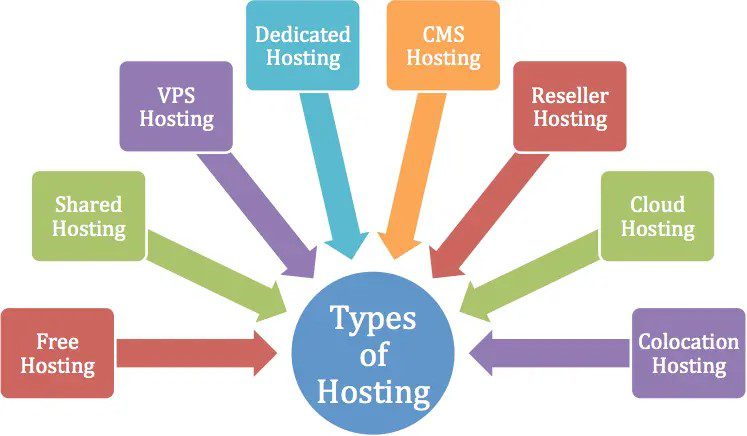
Shared Hosting
According to shared hosting statistics, the shared hosting market grew from $7.73 billion in 2010 to $22 billion in 2020. Shared hosting is an ideal choice for new websites. In a shared hosting environment, your website will be hosted on a server with other websites. Since all the websites are hosted on the same server, server resources are shared.
This means that you will have to compromise on performance but you will also have to pay a lower price. It is the easiest way to host a website for individuals or small businesses who are just starting out. Some shared hosting plans also come with WordPress hosting.
VPS Hosting
VPS hosting offers a perfect middle ground between shared and dedicated hosting. It leverages virtualization technology to divide a physical server into separate compartments. Each website gets its own unique compartment. Even though your website is hosted on the same server as other websites just like in a shared hosting environment, every website is isolated from one another and has its own resources.
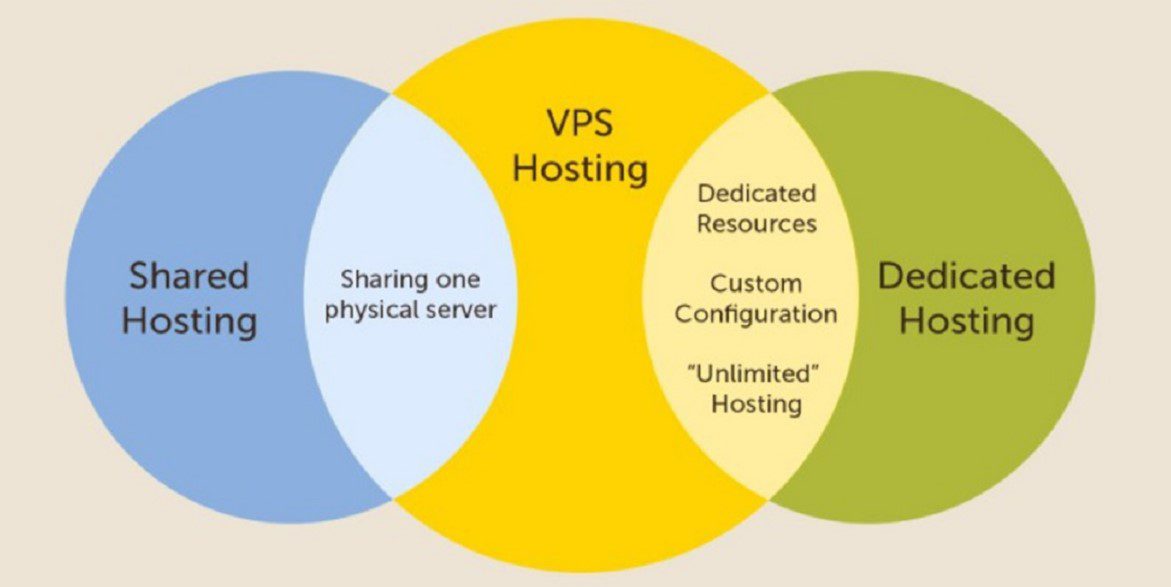
VPS hosting allows you to reap the benefits of dedicated hosting without paying the premium price. If you need better control than shared hosting but don’t want to shell out extra money on buying dedicated hosting, VPS hosting is an ideal choice for you.
Dedicated Hosting
In a dedicated hosting setup, your website will get all the resources since it is the only website that is hosted on the server. It is a great choice for those who want top-of-the-line performance and total control over their server. You can install your favorite operating system and applications and even tweak your security settings. Yes, you will have to pay a higher price for all these perks but you do get better performance, security and control. If your website attracts tons of traffic every day, then a dedicated server should be on top of your list.
Cloud Hosting
Cloud hosting works a little differently as compared to other hosting options. It harnesses the power of a network of computers and combines resources from different computers to host your website. The main highlight of cloud hosting is its scalability. You can scale up and down resources according to your business needs. Since your website is hosted on a network of servers instead of just one, it promises a much higher uptime as compared to other web hosting types.
Managed Hosting
Managed hosting takes the burden off your shoulders and puts the responsibility on the shoulders of managed hosting providers. The service provider will manage everything from hardware to software, setup to configuration, and maintenance to technical support.
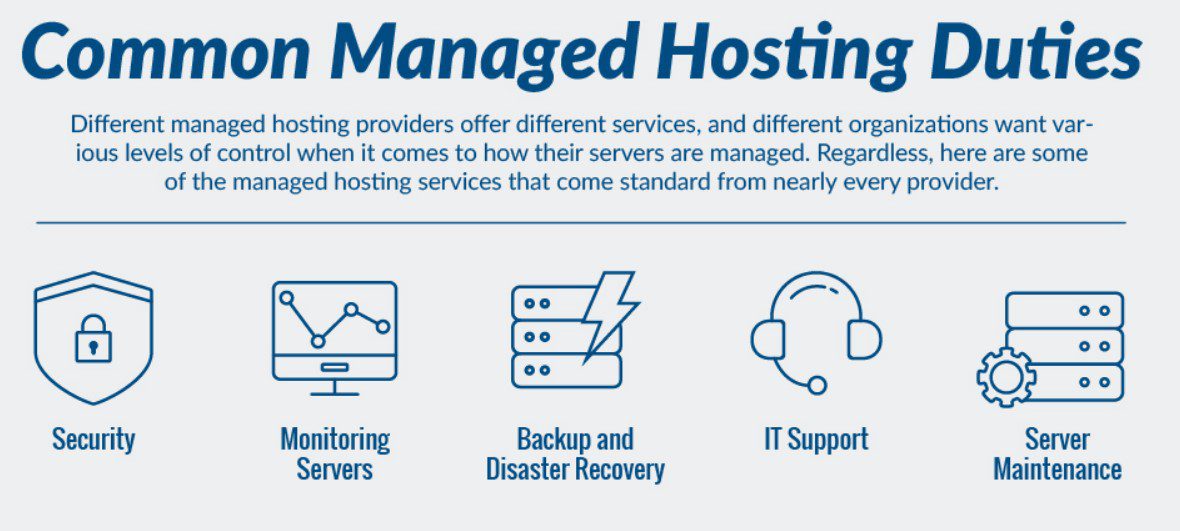
Moreover, they will also take care of updates, patches and software monitoring . If you lack the technical skills to manage your own technology infrastructure, managed hosting is a godsend. Managed hosting plans are more expensive as compared to unmanaged hosting plans but can save you a lot of hassles and headaches.
Ressller Hosting
As the name suggests, reseller hosting is just like white label web hosting. You are literally buying web hosting from a service provider and then reselling those services to your customers. Since you are the reseller, you can set the price you want but it should be higher than what the service provider is charging you so you can make a profit from it. Reseller hosting is the best choice for those who want to sell web hosting to other websites.
Colocation Hosting
If you don’t want to put your server in a private data center, you can consider colocation hosting. You can co-locate your equipment and migrate the server to the colocation data center. The co-location data center will be responsible for providing all the power, bandwidth, IP addresses, network and cooling resources your server needs.
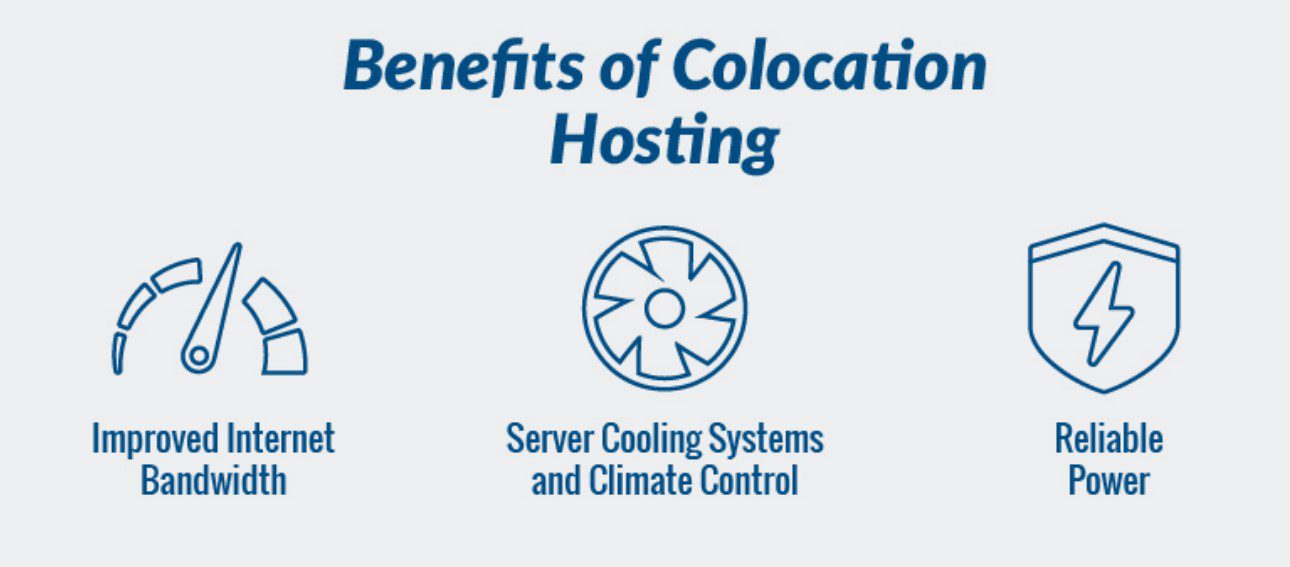
The advantage of colocation hosting is that it gives you access to more bandwidth as compared to other web hosting types, but this carries a hefty price tag. You can achieve the same goal at a fraction of the cost by moving the server to your internal server room but you will miss out on the higher bandwidth. When you move the server in house, you will be responsible for everything but won’t have to pay the higher cost.
What are the similarities and differences between different web hosting types?
Different web hosting types differ greatly when it comes to:
- Speed
- Reliability
- Control
- Storage capacity
- Complexity
- Price
Which Web Hosting Type Should You Choose?
Here is a quick rundown of web hosting types according to different business needs:
- Shared Hosting: Businesses on a shoe-string budget and basic needs should choose shared hosting.
- VPS Hosting: Businesses who don’t want a dedicated server but still want better control, should go for VPS hosting.
- Dedicated Hosting: Businesses that prioritize performance, control and security over everything else should opt for dedicated hosting.
- Cloud Hosting: Businesses that are growing at a rapid pace and need to expand on the go should choose cloud hosting.
- Managed Hosting: Businesses that lack the human resources or technical skills to manage their own technology infrastructure should consider managed hosting.
- Reseller Hosting: Businesses interested in selling web hosting to other websites should look at reseller hosting.
- Colocation Hosting: Businesses who need higher or unlimited bandwidth should consider colocation hosting.
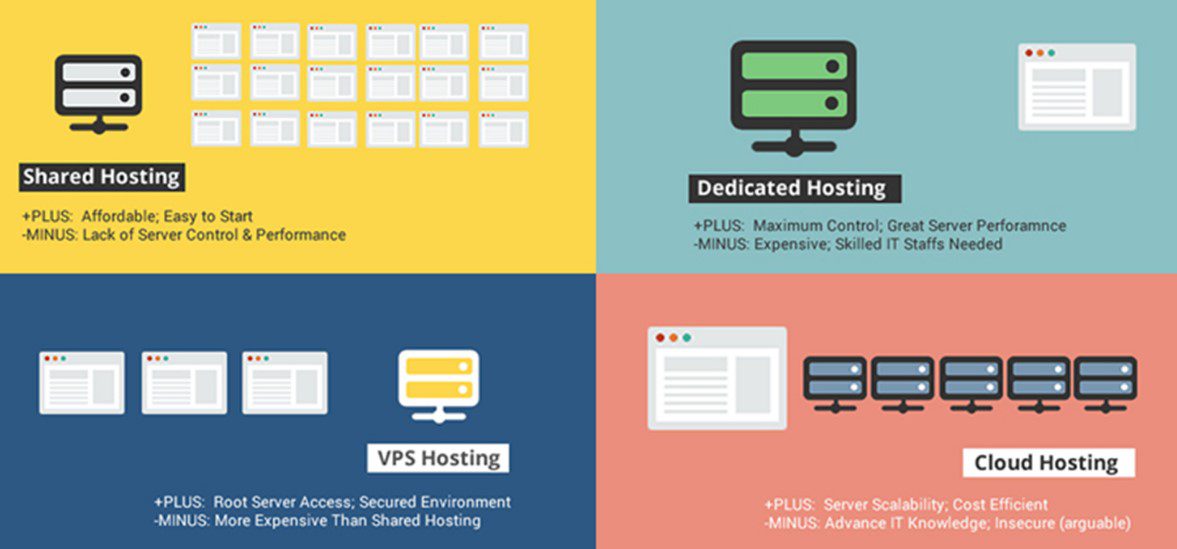
Which type of web hosting would you choose and why? Let us know in the comments section below.
Featured Post
Web Hosting Statistics 2026: Market Growth, Trends and Key Insights
In 2026, businesses face a digital landscape that’s faster, more competitive, and more infrastructure-dependent than ever. Yet many decision-makers still rely on outdated web hosting data, […]
What Is Localhost? Complete Guide to Master It (2026)
Table of Contents What Is Localhost? Local Hosting Definition How Localhost Works? Where is the Localhost File? Common Localhost Ports and Their Uses What Is the […]
API Hosting: How It Works, Types and the Most Cost-Effective Solutions
API hosting refers to the process of deploying and making an Application Programming Interface (API) accessible over a network — usually the internet — so that […]












